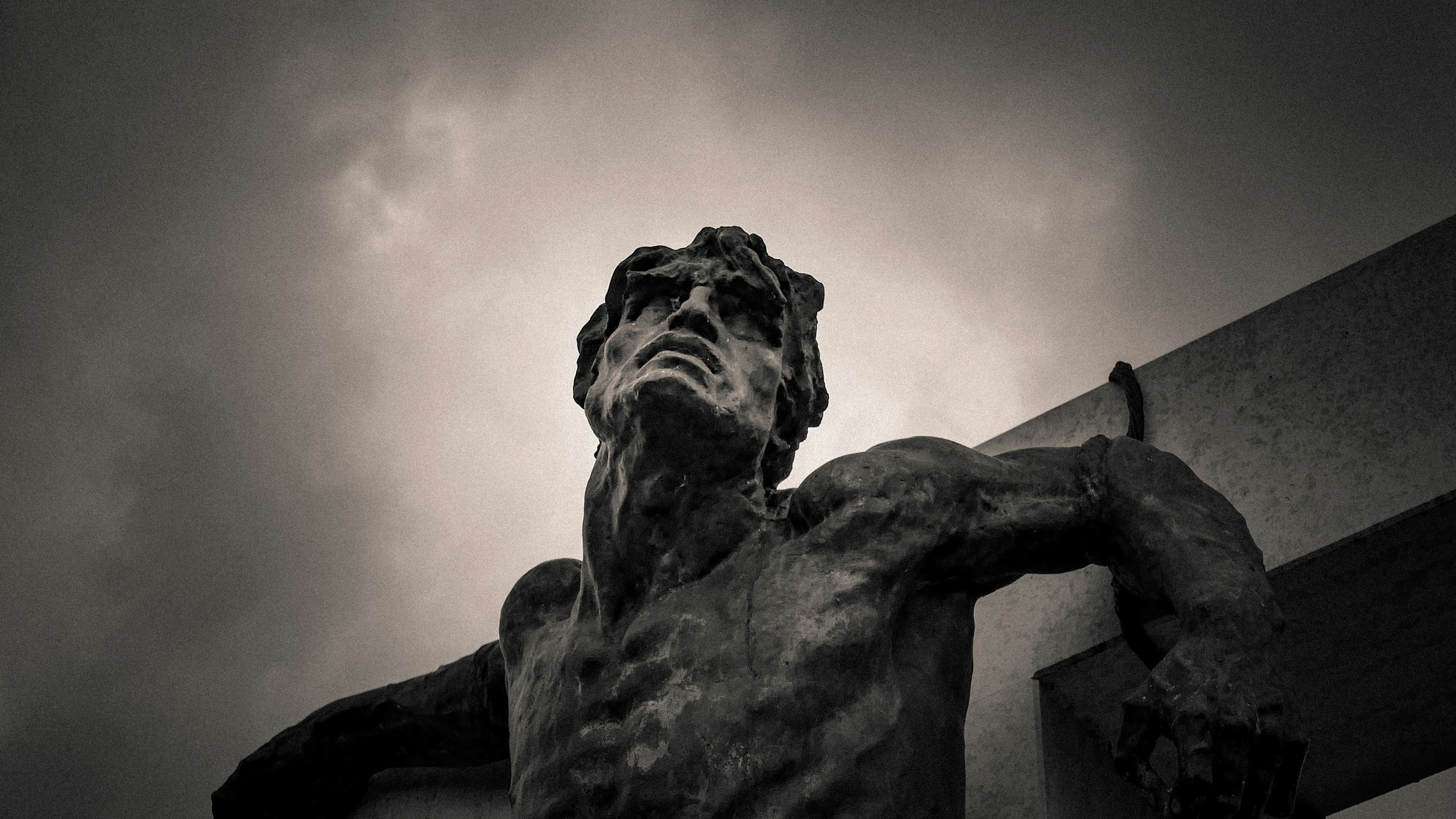
When Jesus spoke of the need to take up our cross and follow Him[1], several events had already taken place as written in the Gospel of St. Matthew. After he had chosen the twelve, he instructed them to be prepared for a coming persecution because of their newly anointed identity and mission, and anticipating the various incidents they would endure in His name Jesus assures them that the only genuine fear is fear of the Lord.[2] A compelling component we encounter in Jesus’ instructional discourse to His disciples is the systematic approach he took to initiate the Apostles and their newly found faith and mission. The witness of His baptism to the proclamation of the beatitudes, and the myriad of healings performed on the two blind men, the mute, and Jairus’ daughter reveals the depths of Jesus’ undying love for us that culminates with his death on the cross.
Within the context of God’s salvific plan for us, we encounter a consistent theme where man is tasked with making a profession of faith, and acknowledgment to God through the Son. This profession of faith is associated with an act of faith where both are bound through a free assent of faith. The assent of faith is rightfully associated with the following proclamation “I believe” which gives the Creed its identity and purpose. The personal testimony to believe in God the Father almighty, creator of heaven and earth exposes the need to identify with Him and live by the distinctive Creed of faith developed in both the Nicene and Apostles Creed. Jesus reminds us that he who receives you receives me and he who receives him receives the one who sent him.[3]
The Creedal Language of God
In the book of Exodus, we encounter a teaching dialogue between God and Moses by way of a burning bush. Through his Divine sensibilities, God reminds Moses that he is standing before a place of holiness that requires an act of reverence and proceeds to remind him of the credal heritage he comes from and the one he will be entrusted to protect and hand on in the name of God.
And the angel of the Lord appeared to him in a flame of fire out of the midst of a bush, and he looked and behold, the bush was burning, yet it was not consumed. And Moses said: “I will turn aside and see this great sight, why the bush is not burnt.” When the Lord saw that he turned aside to see, God called to him out of the bush, ‘Moses, Moses!’ And he said, ‘Here I am.” Then he said, “Do not come near, put off your shoes from your feet, for the place on which you are standing is holy ground.” And he said, “I am the God of your father, the God of Abraham, the God of Isaac, and the God of Jacob.[4]
The significance of this event is God’s desire to make Himself known to Moses and all of Israel. The Catechism reinforces this point as it reminds us that it pleased him to reveal himself and to make known the mystery of his will. His will was so that man may have access to the Father through Christ the Word made flesh, in the Holy Spirit, and thus become sharers in the Divine nature.[5]
When Moses freed the Israelites from their Egyptian bondage through the direct intercession of God our Father, the initial hysteria and gratitude were then meant with disdain, disobedience, and inconvenience. Israel’s behavior became very evident with the desire to worship a Golden calf rather than direct their resuscitated creedal identity with God. An Inconvenient Creed
When the early Church began to structure itself post-resurrection and ascension, we read in St. Paul’s letter to the Colossians the importance of putting on a new life in Christ;
If then you have been raised with Christ, seek the things that are above, where Christ is, seated at the right hand of God. Set your mind on things that are above, not on things that are on earth. For you have died, and your life is hidden with Christ in God. When Christ who is our life appears, then you also will appear with him in glory.[6]
To some, the words of St. Paul may serve as an inconvenience of one’s faith especially if it conflicts with views on human sexuality, marriage between one man and woman, the sanctity of life, or having a proper understanding of Christian anthropology. The significance of St. Paul’s words to the Colossians and St. Peter’s pledge to the crowd after the Ascension of Christ to Heaven is the proposal to believe and assent to the Triune God. When the claim “I believe” is made it signifies obedience, a pledge that some individuals may view as an inconvenience to one’s faith.
The Catechism through St. John Chrysostom reminds us that a Creed is defined as:
This synthesis of faith was not made to accord with human opinions, but rather what was of the greatest importance was gathered from all the Scriptures, to present the one teaching of the faith in its entirety. And just as the mustard seed contains a great number of branches in a tiny grain, so too this summary of faith encompassed in a few words the whole knowledge of the true religion contained in the Old and New Testaments.[7]
Thus, what may appear as an inconvenience to some is the pathway to Jesus Christ and our eternal life with Him in heaven. St. Ambrose reminds us:
This Creed is the spiritual seal, our heart’s meditation, and an ever-present guardian, it is, unquestionably, the treasure of our soul.[8]






